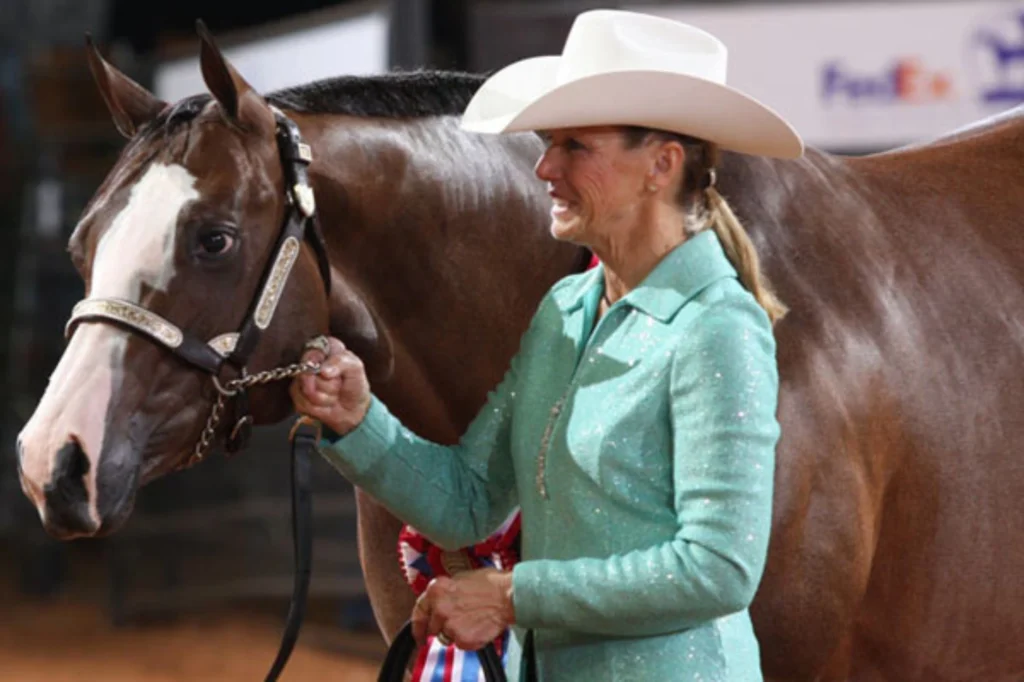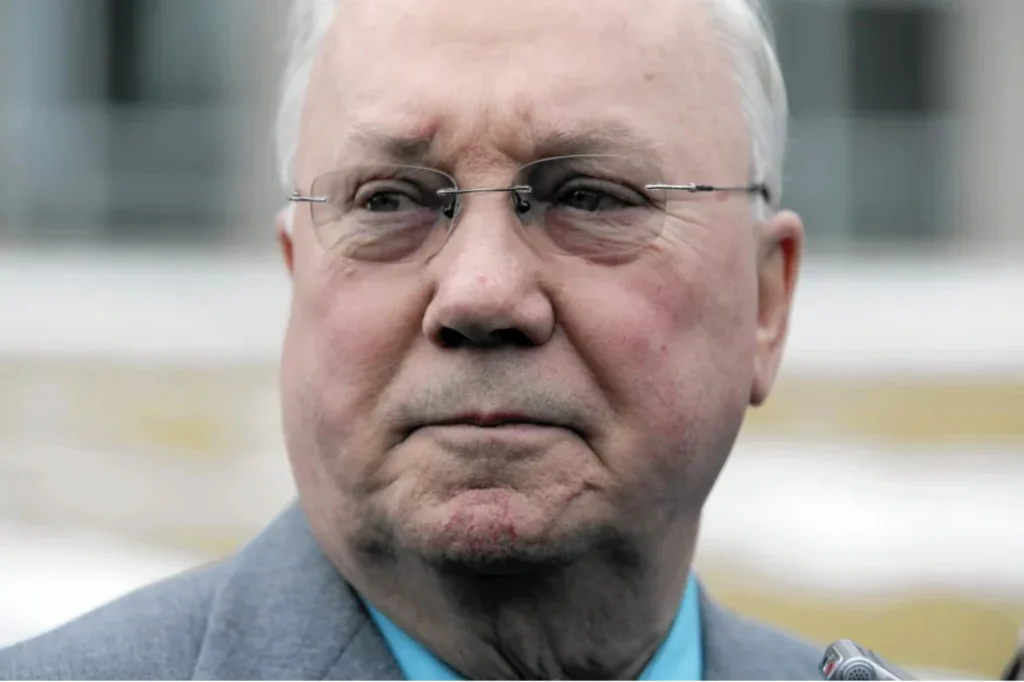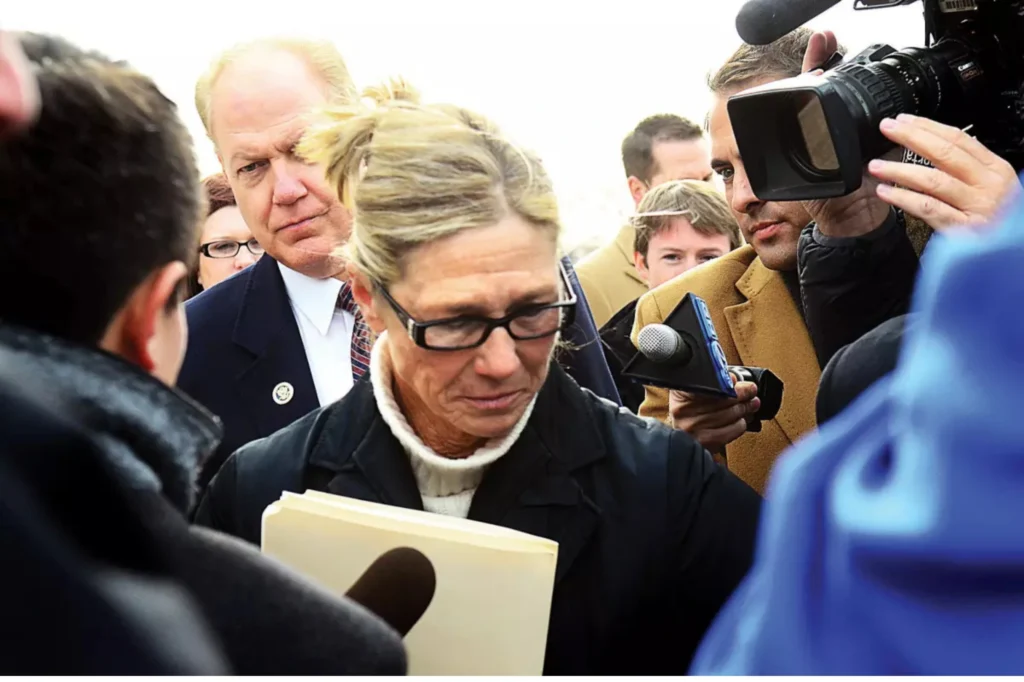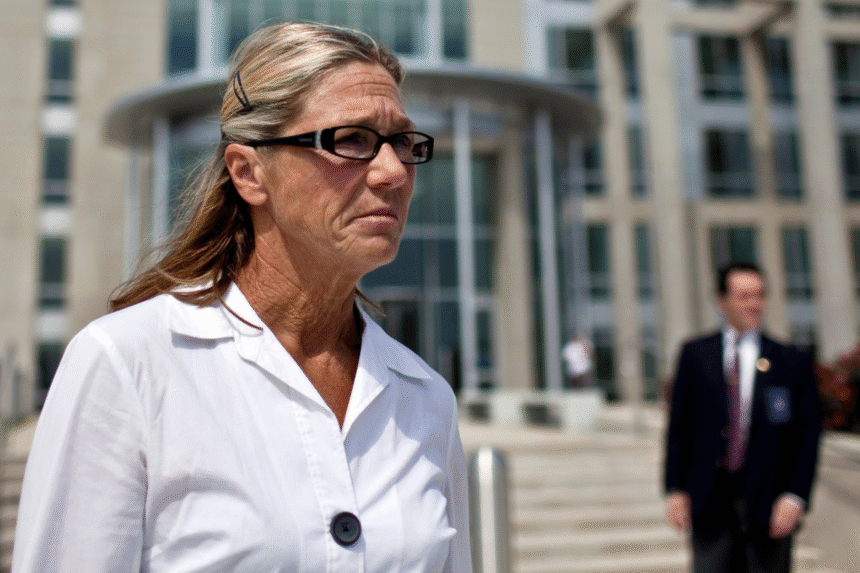On the surface, Dixon, Illinois, looked like any other small Midwestern town. With a population of just over 16,000, it was the kind of place where neighbors waved to one another, people left doors unlocked and trust ran deep. That trust, however, proved to be the town’s undoing when one of its most respected officials carried out a betrayal so massive that it became one of the largest cases of municipal fraud in U.S. history.
For more than two decades, Rita Crundwell, the city’s longtime treasurer and comptroller quietly siphoned $53.7 million from Dixon’s accounts. She didn’t pull it off with some complicated Wall Street scheme. Instead, she used something far simpler — access, control and the faith of people who believed she was doing right by them.
“Rita looks after every tax dollar as if it were her own,” one city commissioner said in 2011, just a year before her arrest. As it turned out, she literally was.
From Farm Girl to City Hall

Born Rita Humphrey on January 10, 1953, she grew up on a farm near Dixon. Horses became a passion early in her life, a passion that would later play a central role in both her public image and her private crimes.
As a teenager, she began working at Dixon’s City Hall through a school program, sorting mail and learning the rhythms of local government. After graduating from Dixon High School, she kept her foot in the door. By her late 20s, she had become secretary to the mayor and in 1983, she earned an even more powerful position: city treasurer and comptroller.
It was an extraordinary leap for someone with no college degree in finance but she seemed committed. She divorced her husband, Jerry Crundwell, in 1986 and from then on, her life revolved around two things: the city’s books and her beloved American Quarter Horses.
Her peers saw her as reliable, even frugal. “She was always tight with money, always asking questions about budgets,” recalled Mayor James Burke in an interview years later. “There was never a reason to doubt her.”
The Secret Account

Behind her reputation, though, Crundwell was already crafting a second life. In December 1990, she opened a bank account under the name Reserve Sewer Capital Development Account (RSCDA). The name sounded official enough to slip past suspicion. Crucially, she was the only signatory.
According to the Department of Justice, from there, the theft became routine. She created fake invoices from the state of Illinois, approved them herself and transferred city money into the RSCDA account. Checks were written to “Treasurer,” which she deposited directly.
It wasn’t flashy and it wasn’t even clever. It was simply consistent, patient and effective. At first, she took a few hundred thousand a year. By the mid-2000s, she was funneling millions annually. In 2008 alone, she drained $5.8 million — in a city where the annual budget hovered around $9 million.
To anyone else, the numbers might have raised alarms. But Crundwell kept control over nearly every aspect of Dixon’s finances and the outside auditors trusted her. Clifton Gunderson, the firm responsible for reviewing Dixon’s books, never flagged the invoices. Fifth Third Bank where the secret account was housed, didn’t raise questions either.
“She had no oversight,” said Kelly Richmond Pope, a forensic accounting professor who later directed the documentary All the Queen’s Horses. “There were no controls, nobody was looking, and no one was asking questions.”
Living Large in Plain Sight

While Dixon’s roads crumbled and city workers went years without raises, Crundwell lived like royalty. She poured money into RC Quarter Horses, her breeding operation that became one of the most successful in the nation. Her horses won 52 world championships and the American Quarter Horse Association recognized her as its leading owner for eight straight years.
She bought a $2.1 million motorhome, luxury cars, jewelry and multiple properties including a second home in Florida. To most residents, this didn’t set off alarms. Many believed she came from family money or that her horse business was simply booming.
Meanwhile, Dixon struggled. The police department couldn’t afford new radios. Road repairs lagged far behind. In a decade, the city managed to fix only 65 blocks of road.
“People would ask why things weren’t getting done,” Mayor Burke recalled in interviews with Chicago Tribune. “Rita would tell us the state was late in sending tax money. We believed her. We all did.”
The Discovery

Ironically, Crundwell’s undoing began with her love of vacations. In 2011, she took an extended trip, leaving city clerk Kathe Swanson to handle some of her duties.
That’s when Swanson noticed the RSCDA account. It had 179 deposits and a long trail of questionable activity. She didn’t recognize it as a city account. Alarmed, she went straight to Mayor Burke, as noted by Wikipedia.
Burke, stunned, contacted the FBI. For the next six months, he and Swanson kept quiet as federal agents investigated. They traced transactions, collected evidence and built a case.
On April 17, 2012, Crundwell walked into City Hall as usual. Instead of starting her workday, she was met by FBI agents. The town’s most trusted official was led away in handcuffs.
The Courtroom Drama

In November 2012, Crundwell pleaded guilty to a single count of wire fraud, admitting she had stolen more than $53 million over 22 years. Prosecutors described her scheme as breathtaking in its scale.
“She chose to steal from her neighbors, the very people who trusted her, to fund her lavish lifestyle and her horses,” U.S. Attorney Gary Shapiro said at the time.
The government seized her assets — three homes, a farm, luxury vehicles and nearly 300 horses. Auctions raised more than $9 million. Dixon also sued its auditors and Fifth Third Bank, winning $40 million in settlements.
But the financial wound was deep. The city remained more than $16 million short, even after recoveries.
On February 14, 2013, Judge Philip Reinhard sentenced Crundwell to 19 years and seven months in federal prison. “You showed more passion for the welfare of your horses than the people of Dixon,” he told her in court. He revoked her bail immediately, sending her straight to prison.
Prison Life and Early Release
Crundwell served her sentence in federal facilities in Minnesota and Texas. She was originally scheduled for release in 2030, having to serve at least 85 percent of her term.
In 2020, she requested compassionate release due to health issues but Dixon officials fought it. Mayor Burke, who had been instrumental in her downfall, told reporters, “She doesn’t deserve to be free while Dixon still pays the price.”
Still, in August 2021, she was quietly transferred to a halfway house after serving about 8½ years — just 43 percent of her sentence. The news sparked outrage.
Then in December 2024, President Joe Biden commuted her sentence, part of a sweeping action that affected nearly 1,500 nonviolent offenders released under the CARES Act. For Dixon, it felt like another gut punch, the CBS News reports.
Aftermath and Lessons
Even years later, the Crundwell scandal casts a shadow over Dixon. Residents who once believed in her honesty still feel betrayed.
“You think you know somebody,” one lifelong resident said. “She sat next to us at church. She cheered at our parades. All the while, she was stealing our future.”
The case has become a teaching tool for auditors, accountants and government officials nationwide.
As Pope noted in her documentary, the story isn’t just about one corrupt treasurer. It’s about a system that allowed her to operate unchecked for decades. “This could happen anywhere,” she warned.
Judge Reinhard’s words still echo as a reminder of the damage caused: “Public trust is fragile. Once destroyed, it cannot easily be rebuilt.”




